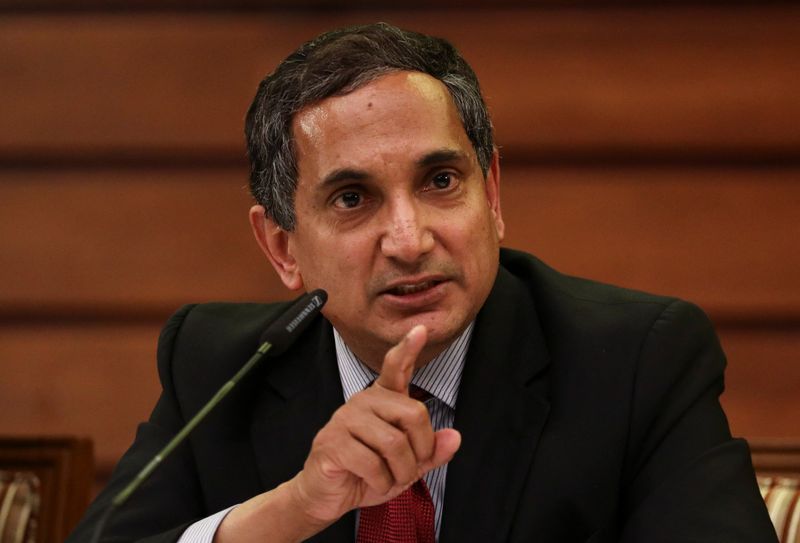By Leika Kihara
TOKYO (Reuters) -Japan must fund any additional spending plans within its budget rather than issue more debt, the International Monetary Fund said on Friday, urging the government to get its fiscal house in order as the central bank starts to raise interest rates.
"Given the fact that monetary policy normalisation is happening, it puts the onus on the fiscal side to actually embark on consolidation, which is, in my opinion, long overdue," Krishna Srinivasan, director of the IMF's Asia and Pacific Department, told Reuters in an interview.
Japanese Prime Minister Shigeru Ishiba has pledged to compile another large-scale spending package to cushion the blow to households from rising costs. He has not commented yet on how the spending will be funded.
"Any kind of support you're providing should be a lot more targeted, and any kind of new initiative should be financed within the budget," Srinivasan said. "You should not be increasing more debt to provide for any new initiative."
On monetary policy, Srinivasan said the Bank of Japan should raise interest rates in a "gradual" and "data-dependent" way as there were both upside and downside risks to inflation.
The BOJ maintained ultra-low interest rates on Thursday but said risks around the U.S. economy were somewhat subsiding, signalling that conditions are falling into place to raise interest rates again.
BOJ Governor Kazuo Ueda has said the central bank will keep raising interest rates, currently at 0.25%, if Japan makes progress towards sustainably achieving its 2% inflation target.
"I think the BOJ is doing the right thing. It's doing everything possible to make sure that inflation and inflation expectations are anchored at 2% over the policy horizon," Srinivasan said.
A prolonged period of ultra-low rates in Japan has been partly behind the yen's recent downturn. The currency weakness in turn is hurting retailers and households by pushing up the cost of importing fuel and raw material.
Japanese authorities have said the yen's recent moves were "one-sided" and sharp, issuing a warning to investors against pushing down the currency too much.
Srinivasan said currency markets could experience some volatility when there was "so much uncertainty" about the economic outlook of Japan and the United States, and factors that could magnify the moves such as an unwinding of yen carry traders.
"But broadly speaking, I think they're fully committed to the flexible exchange rate regime," he said of Japanese authorities' stance on yen moves.
Japan's public debt, at twice the size of its economy, is the largest among major nations due to huge spending packages delivered in the past and the rising social welfare costs for a rapidly ageing population.
On China, Srinivasan said the priority for authorities must be to fix the country's property sector woes that were leading to "very weak" consumption and investment.
"The property sector problems have not been addressed in a comprehensive way, and that has led to consumer confidence plummeting," he said. The resulting slack in the economy was pushing down prices and heightening the risk of deflation in China, he added.

Falling export prices in China would also hurt countries in Asia with similar export structures such as South Korea and Vietnam, as they would also need to allow their currencies to weaken in order to compete with cheap Chinese goods, he said.
"China needs to move away from an investment and export-led model, to a consumption-led model, which means they have to beef up their social safety nets," Srinivasan said.